From empty beaches to empty restaurants, COVID-19 has changed the Tampa Bay area and the businesses that live here. Business leaders from Publix, MarineMax, Mise en Place and more share their stories of lessons learned and what comes next for them.
RETAIL
Maria Brous, Director of Communications, Publix
What changes have been made to accommodate this “new normal” we’re finding ourselves in?
We continue to be keenly focused on intensive, ongoing protective measures in all our stores. Those efforts are conducted with guidance from the Centers for Disease Control and Prevention, local and state health departments and include:
• A heightened ongoing disinfection program focusing on high-touch surfaces like touchpads, door and drawer handles, phones and computers.
• Continued cleaning and sanitization of stores.
• Quarantine and paid leave for 14 days for any associate who tests positive for COVID-19 to recover from the illness.
• Notification, quarantine and paid leave for up to 14 days for associates who have been in close contact with the associate who tests positive for COVID-19.
• The installation of plexiglass shields at registers, customer service desks and pharmacies in all stores.
• In-store signage, one-way directional aisles and public address announcements reminding customers, and associates, of social distancing.
• Visual reminders of appropriate six-foot spacing via marked lines at registers.
• Requiring associates to wear face coverings.
• Adjusted store hours to allow more time to conduct additional disinfection measures and restock shelves.
What lessons have you learned in the past weeks?
A continued reinforcement that Publix people lead with a servant’s heart and are committed to serving our customers, communities and each other.
The grocery industry is resilient, we just need to be patient and allow the industry an opportunity to recover.
What has your company done that gives back to the community in some way?
We are extremely grateful for the opportunity to do good, together with our farming community and Feeding America member food banks. As a food retailer, we are in a unique position to help those in need and feed families. We are purchasing fresh fruit and vegetables from Florida farmers and dairy from Southeastern farmers and donating to Feeding America member food banks. In our first four days alone, we donated more than 400,000 pounds of produce and 43,000 gallons of milk. In addition, Publix Charities has donated $2 million to Feeding America member food banks during the pandemic.
Abbey Heimensen, Director of Marketing, MarineMax
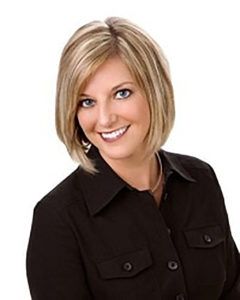
What were the first few days like at your company as you realized things were about to really change for you?
For most of our team, the first few days were spent transitioning to operating remotely. Then, we simply accelerated our plans to use several pieces of new technology companywide.
What changes have been made to accommodate this new normal we’re finding ourselves in?
One of our core values is to always plan for the long term. Most of our team have experience working remotely, and we’ve been investing in technology to enhance the boat shopping and ownership experience. MarineMax pioneered the “online boat show” experience, hosting seven virtual events since 2018. Features such as online chat, interactive webinars, options to place a boat on hold and the mobile boating app have now become standard practice. We were poised to change the way customers experience boating.
What lessons have you learned in the past weeks?
Our team, our customers, our shareholders and our communities are extremely strong and generous. Boating remained one of the activities people could enjoy while practicing social distancing. Everyone stepped up to make sure boats were in working order.
What has your company done that gives back to the community in some way?
We consider the boating community family, including our manufacturers and industry partners. Since we have been working on enhanced digital capabilities for years, we used our tech to help push out messages other than our own. The hope is we’ve kept people employed and our customers entertained.
Looking forward, what are some plans you might have as we start to move to the fall?
We plan to continue enhancing our online experience. These measures include virtual boat walkthroughs, where a customer can walk through their new boat anywhere using FaceTime, Zoom or several other video conferencing programs. The entire boat shopping experience can be completed without stepping foot into a dealership. By using digital resources to securely document the transaction and obtain signatures, coordinate spot deliveries and set up virtual boat orientations, a new owner can take delivery and be on the water in no time. We’re even looking at bringing our events and boating classes to a virtual format.
PROFESSIONAL SERVICES
Lisa Faller, President, FKQ Advertising and Marketing
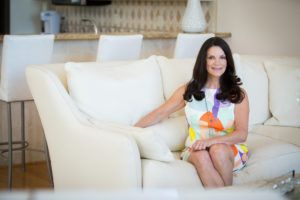
What were the first few days like at your company as you realized things were about to really change for you?
As a company that’s been around for almost 60 years adapting in a crisis isn’t new territory, even though one of this magnitude might be. It was important for us to use our methodical and disciplined approach to crisis management, coupled with our ability to be nimble and agile, since this situation called for constant pivots. Our executive committee remained in constant communication and immediately made the health and safety of our FKQ family and transparency our two top priorities, knowing that people were concerned and frightened personally and professionally. While it was daunting, we worked together 24/7 to quickly carve out our new normal as a company.
What changes have been made to accommodate this new normal we’re finding ourselves in?
Working remotely has been the biggest change. We are a tight-knit group, both internally and working with our clients. Human connection is intrinsic to what we do. Not physically being together is the biggest change. But we have quickly adapted. Technology works hard to bridge the gap: Zoom, Teams, texting, calling, lots and lots of memes. Beyond meetings, we work hard to keep up personal connections. There is no separation, when working from home, between your professional and personal lives. We make it a positive and love seeing things, like ballerinas and Spiderman, in the background of our Zoom meetings.
What lessons have you learned in the past weeks?
Oddly enough, no new lessons. Just reinforces the importance of what we have always done. Remain agile and whatever you do, do it together. All-in.
What has your company done that gives back to the community in some way?
We are major proponents of giving back to the community where we live and work. Specific to our efforts during this unprecedented time, we have a two-pronged approach.
One way we are helping is through all the brands we serve in assisting their efforts right along with them. Many of our clients have employees on the front line, serving the needs of all while staying safe and healthy. We are supporting their efforts in a variety of ways.
Additionally, we will be working with a select number of nonprofit entities, in our ongoing pro-bono efforts, to assist all in raising awareness and funds.
Looking forward, what are some plans you might have as we start to move to the fall?
Glad you asked. Everyone is looking to the recovery phase. Beyond that, it’s thinking about our evolution as a company. We know we will come out stronger because we are people-first. Our people, our clients and ultimately consumers. If we remain attuned to people’s needs and evolve to meet them, that will be the ultimate metric for our future success.
Lauren Davenport, Founder and CEO, The Symphony Agency
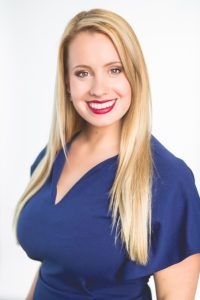
What were the first few days like at your company, as you realized things were about to really change for you?
Interesting, to say the least. My husband and I were in Africa, on vacation, when things started to get serious. We had spent two prior weeks in Spain and had met people who were “escaping” from Italy, so our perspective was unique. We arrived in Morocco on Thursday, March 12, and instead of exploring the city of Marrakesh, I spent the afternoon working with my management team to develop a COVID-19 response plan. We published it that afternoon at a Level I status but by the following Monday, the CDC guidelines had changed. In response, we decided to escalate to full work-remote status.
Thankfully we have always been a cloud-first, technology-friendly company, so we didn’t have too many bumps or bruises with the shift. That being said, over that same weekend the borders of Morocco were shut down within 48 hours, so there was a lot of anxiety about getting stuck in Africa during a pandemic and with a crashing economy. Thankfully, we were able to fly back to the States via a U.S. rescue flight on March 20.
What changes have been made to accommodate this new normal we’re finding ourselves in?
We have always had a liberal work remote policy but, like most nonessential organizations, we are now 100 percent remote. For now, we plan to stay that way until May 15. But, we’ll continue to monitor what health professionals are suggesting and use them as our north star for guidance to determine when we’ll be reunited in our St. Petersburg headquarters.
One of the biggest changes that has happened in our business is that we are now holding virtual Success Orchestrator workshops. These workshops are typically either one or two days long, depending on the client’s needs, and I travel all over the country to conduct them. Before the pandemic, we had a workshop planned for April 13 in Minnesota. We canceled our flights and instead adapted the workshop to work with Zoom. It was a huge success and the client has already booked us for another digital version of the workshop, for a newly acquired practice.
We’re also looking for creative ways to keep our team engaged, and spirits high, despite our inability to congregate face-to-face. We hold a weekly Friday happy hour on Google Hangouts (drinks not required) where we start the conversation by talking about what new things we’ve learned from the previous week of quarantine. They range from silly things like new Netflix shows, to topics of learning new development languages. As we are also a dog-friendly office (when we’re actually there) everyone brings their pets to happy hours as well, so we can all get our daily dose of cuteness.
In addition to these fun elements, we’re also doing our first Virtual Spirit Week. Each day, there is a topic for the team to share photos, videos, links, etc. of fun, non-work related things. We are sharing these in a #spiritweek Slack Channel as well as our social channels.
What lessons have you learned in the past weeks?
The most important lesson I have learned is how critical clear, concise and straightforward communication is in a time of crisis. This wasn’t a lesson I learned at the company, but one I learned from the U.S. Moroccan embassy.
When we got back from the Sahara Desert on March 17, all of their borders had been shut down — land, air and sea. They weren’t even letting their citizens back into the country and it had all happened within a 48-hour timeframe — in a completely unprecedented turn of events.
We travel a lot, so we’ve always expected that if anything happened on one of our adventures, the embassy would be our ally. Instead, we heard silence.
While the U.K. ambassador was constantly updating his people via press conferences, email communications and on Twitter, we got crickets from the U.S. Embassy. The only response that came from our embassy was the standardized, tourist-in-trouble letter telling us to send our basic information via email. Our president gave some additional information, telling U.S. citizens to book commercial flights home to the U.S. as soon as possible — but there were no flights available.
People were angry and scared. A Facebook group was started for the thousands of people stuck in Morocco that brought light to just how painful the lack of communication had been.
Four days later, we received an email, at 2 a.m., telling us that rescue flights had been arranged for 10:30 a.m. that same day. It was a scramble.
It was a tough situation all around and we are all learning—governments included—as so many situations we are facing are completely unprecedented. But a clear, concise and straightforward stream of communication would have made a big difference, not only to the people who were stuck but also to the government who had a PR nightmare on their hands, centered around the lack of communication.
I’ve used this lesson extensively in our company since getting back home. My management team and I are in constant communication with our team, clients and vendors via weekly emails and video calls. We talk about the hard stuff. The unemployment rate, the negative impact the pandemic has had on our financial stability, etc. But we also talk about our plans to negate the negative, and come out of this thing stronger, while providing ways our team can get involved in making that happen.
Open and consistent communication in crisis is critical. Don’t offer false hope. Set timelines and expectations—and reset them when you must— but do so with notice. It might be more painful in the short term but in the long run, it builds a strong culture and will help you to retain and attract customers.
What has your company done that gives back to the community in some way?
We are currently in the process of creating a pro bono communications and marketing plan to increase the exposure of a local nonprofit. They are doing so many wonderful things in our community to help those hit hardest by the economic downturn and we want to help get their message out so they can assist even more people.
We’re still ironing out the details, so I don’t want to share too much information yet, but we’re excited about the opportunity to work with the locally focused nonprofit in a way that uses our team’s skills to become a part of the solution for our community, and our neighbors, in these difficult times.
Looking forward, what are some plans you might have as we start to move to the fall?
There are opportunities in every economic environment. And, as we look forward to what the rest of 2020 will bring, we are dedicated to creating new and innovative solutions to help our clients solve their biggest challenges in the new economy.
We have hired a team of consultants to help us evaluate our customer’s needs and create new products that bring even more value to our current solutions, which we are excited about. Innovation is not going to be something cool to do—it will be a requirement to survive.
I also believe that the future will be more relationship-based than ever. I was recently on a webinar with Verne Harnish, author of Scaling Up, and he said that our new normal isn’t a problem you can think your way through—it can only be solved by talking through it. There is a lot of truth in this statement.
Knowing this, I’ve been spending a lot of time simply connecting with other business owners around the country. Listening to their challenges. Sharing mine. Learning from each other. I’ve been pleasantly surprised to find that the changes in our economy have unearthed a new level of authenticity, and openness, in many of these conversations. It is my hope that this will be one of the things we don’t lose sight of as we get further away from the pain of the pandemic.
HOSPITALITY
Maryann Ferenc, owner, Mise en Place Hospitality group, includes Cafe by Mise en Place, located at Tampa International Airport, Montados at Sparkman Wharf, the Berkeley Beach Club in Pass-A-Grille and the Dewey Beach Restaurant

What were the first few days like at your company, as you realized things were about to really change for you?
Surreal. Immersive. Painful. We were literally open on Saturday night for high-volume, high-energy nights at both establishments and closed the following Tuesday. We opened for to-go, carry-out and delivery on Wednesday. Overnight, we laid off the majority of our employees.
What changes have been made to accommodate this new normal we’re finding ourselves in?
We have looked closely at our brand to see what about it applies, and is essential to our customers at this time. So in addition to immediately offering a version of our “Menu To Go,” we developed new menus such as our Mise Fit with Flavor and Mise Family Meals.
What lessons have you learned in the past weeks?
We need to finally learn the lesson to stay in the present moment. It is more important than ever for each of us to nourish ourselves. I have always been a fan of parallel tracks, but this is crazy.
What has your company done that gives back to the community in some way?
We are using some of our PPP money to put our staff to work at Metropolitan Ministries and Feeding America Tampa Bay. We are working on Operation Frontline, which helps put restaurant workers to work cooking meals for hospital workers.
Looking forward, what are some plans you might have as we start to move to the fall?
We are looking at not only what we can be in the future based on guidelines but also on the essence of the brand and what we are inspired to be. At Mise en Place, our future brand in action will be a combination of all things Mise has been over time—quality dining, community restaurant, market and dining in your home … more of a food and drink lifestyle business. At Berkeley Beach Club and the Dewey, we will be more of the club in our title, creating a place where you can explore and share food, drink and Gulf Coast living with sharing “clubs” around various topics, from gardening to healthy living, that we can share around the table.
Jeff Gigante, co-founder Forbici Modern Italian and Ciccio Restaurant Group
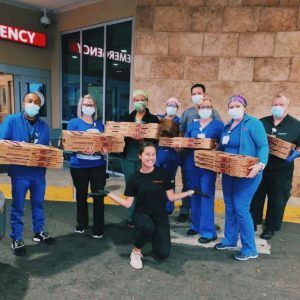
What were the first few days like at your company as you realized things were about to really change for you?
I think it’s safe to say it was quite terrifying those initial days, as the government and state mandates were coming down. Once we understood, we really had no alternative as to finding a way to make it work in the new normal, we strapped on our boots and got to work.
What changes have been made to accommodate this new normal we’re finding ourselves in?
The biggest change for us was to create the protocol, and implement the systems, of speedy preparations of food for carryout and delivery. Following all of the guidelines for compliance with the state-federal and CDC safety precautions took a bit of getting used to, but we quickly adapted and have grown our business week over week.
What lessons have you learned in the past weeks?
The old saying “everybody has a plan until you get punched in the face,” comes to mind. We thought we were getting into a great groove going into March then this happened and we had to reinvent ourselves, which has been both terrifying and extremely rewarding.
What has your company done that gives back to the community in some way?
We started in the third week of March getting meals out to our front lines and putting the word out through our social media channels for customers to be able to pay it forward and donate, in $10 increments, meals for these frontline workers. We are proud to say we fed over 2,000 frontline workers’ meals.
Looking forward, what are some plans you might have as we start to move to the fall?
We are excited that we’ve gotten over the hump with the COVID-19 crisis and look to hopefully be returning to normalcy in May. We will continue to practice our “thank you” culture to the wonderful customers that kept us afloat through this, hopefully in person.
Richard Gonzmart, 4th Generation Caretaker & President, Columbia Restaurant Group
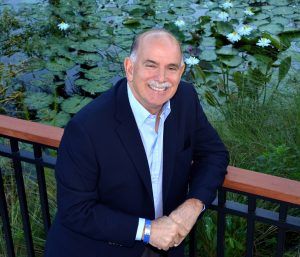
What were the first few days like at your company as you realized things were about to really change for you?
Like everyone else early on, we were watching and waiting for information. It changed hourly, it seemed. Our restaurants are always very busy. Once the shut-down order came, the resulting silence and emptiness were eerie. Even haunting.
What changes have been made to accommodate this new normal we’re finding ourselves in?
For us, the changes are significant. All our street-side restaurants closed March 20. It’s the longest continuous closure in our 115-year-history. For the rest, we’re still finalizing our plans to reopen and what that will look like, both short-term and long-term.
What lessons have you learned in the past weeks?
This has reinforced how we view our role as a community gathering place, a spot where people come to celebrate, to mourn and to seek solace. We keep hearing how much people miss, not only our meals but also the entire experience of dining at the Columbia or our other restaurants. Also, with the restaurants closed and no business we’ve had some time to think, to plan and to consider. Einstein said every crisis reveals opportunity, so we’re trying to make the most of this forced downtime to set ourselves up for success, when we do reopen.
What has your company done that gives back to the community in some way?
For our furloughed employees, we paid all health insurance costs and provided meals. We have provided free meals to the Tampa Police Department and to furloughed employees of La Segunda Central bakery. As we move closer to reopening, we have already scheduled free meals for four different Tampa Bay area hospitals, to thank them for all they’ve done.
Looking forward, what are some plans you might have as we start to move to the fall?
We will open our Casa Santo Stefano Sicilian restaurant on 22nd Street in Ybor City. It’s a tribute to the immigrants who came here in the late 1800s, and the early 1900s, looking for a better way of life. Sixty percent of the Italian immigrants in Tampa came from tiny Santo Stefano. We have a few other plans, too, that we hope will happen before the end of the year.
NONPROFITS
Sherry Silk, CEO, Humane Society of Tampa Bay
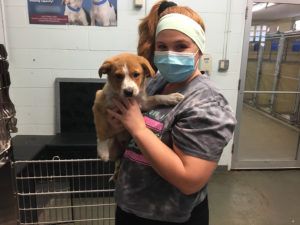
What were the first few days like at your company as you realized things were about to really change for you?
The COVID-19 virus has been a fluid situation and when this first started in early March, we made the decision that we would stay open because the animals, and the community, needed us. We are considered an essential service to the Tampa Bay region, but we wanted to make sure we did it in a way that was safe for our staff and volunteers. We looked at our physical space and separated chairs and benches in our waiting rooms in the shelter, and in the hospital, so that we had six-foot social distancing between everyone. We added lots of disinfectant stations and drew lines where people should stand. We had heard about the virus in China in December so we had already ordered additional supplies, and medications, that we knew came from China. This was especially true for all of the antibiotics, and medicines, that are required in our hospital. So we were fortunate that we had plenty of supplies including gloves and masks for our staff.
What changes have been made to accommodate this new normal we’re finding ourselves in?
As the virus started to spread, and we learned how deadly it could be, we became more restrictive on the public entering our buildings. We take temperatures of every person, including staff and volunteers, that enter our buildings. If someone has a fever they are not allowed to enter. We are having clients wait in their cars and our technicians take their pets into the building to see the veterinarian and the animal is treated and returned to the car. We are limiting the number of people in our adoption lobby, and many of the adoptions are being done outside on a laptop, so that some people never enter the shelter. These changes have really made our staff and volunteers feel more comfortable and keep everyone safe.
What lessons have you learned in the past weeks?
I knew this before but it really has been solidified during this difficult time, that people in the Tampa Bay area care very deeply about their pets. Even in a pandemic if their dog or cat gets sick, or needs medical treatment, they will seek treatment for them. And even though our donations have dropped dramatically, there are people that know the need and continue to donate what they can. Whether it is a bag of pet food, or a cash donation, we really appreciate it because we understand people are struggling. The public has also continued to adopt our animals, which is very rewarding during this challenging time. I also know that we have the best staff, and volunteers, in the world. Even though many staff are frightened of the virus, they come to work each and every day to take care of our animals.
What has your organization done that gives back to the community in some way?
We’ve had a food assistance program for people who need help feeding their pets since 2008 when the mortgage crash happened. Well, that program has exploded in the last six weeks. People who have lost their jobs and are having difficulty feeding their pets can come to us and receive free pet food so that they can keep their pets. We are also continuing our Animals program, which is a “Meals on Wheels” type of program for senior citizens and the homebound. Many veterinary clinics chose to close during this pandemic and we have remained open so that people can get their animals treated. We are also open if you find a stray dog, so that we can shelter that animal until the owners can find it.
Looking forward, what are some plans you might have as we start to move to the fall?
We rely heavily on our special events, to fund our needed services. As soon as restrictions are lifted, we are going to reach out to the companies that have supported us in the past, and start holding adoption and special events so that we can try to regenerate much-needed funding for our shelter. When it is safe, we will bring back our children’s programs, so that kids can come and read to our pets as well as our other programs. Our black-tie event, Tuxes and Tails, is scheduled for Oct. 10 at the Tampa Convention Center. It is our largest fundraising event, and we are really looking forward to it. It’s a great way to show off our beautiful animals on stage. We are so fortunate that we live in a place that cares so much for animals and we are proud that we stayed open to help, as much as we could. ♦
